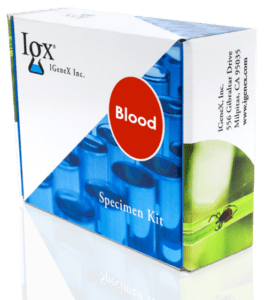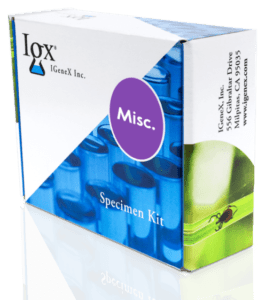Lyme disease is widely misunderstood and misdiagnosed amongst medical communities. It is often called “the great imitator” because its symptoms can mimic those of other conditions like fibromyalgia, Alzheimer’s disease, and autoimmune disorders. This, along with inconsistencies in testing, can make Lyme disease difficult to diagnose.
Matters can be further complicated if your doctor is unwilling to listen to your concerns about your health, or you don’t know how to get tested for Lyme disease in the first place. Lyme disease, and broadly tick-borne disease, symptoms can greatly impact your overall well-being. Receiving a proper diagnosis and access to the right treatments are essential.
Proper diagnosis starts with having the right medical providers. So what do you do when your doctor isn’t listening to your concerns?
Find a different provider
It may seem obvious, but it’s easy to forget in stressful moments or when you’re in the midst of it – but healthcare is a service. You are paying for a service and have the right to work with a provider who supports your concerns and let go of one that doesn’t.
We understand that medical care is a tricky territory and seeing different providers takes time and money, not to mention it can be emotionally draining – especially when you’re already feeling sick. That being said, if you have a severe healthcare concern and aren’t being listened to by your provider, you must find a provider who can actually support you and set you on the path toward feeling better.
Lyme disease can be so challenging to diagnose, as such, many general practitioners may need more tools or knowledge about Lyme disease. That’s why it’s crucial to find a specialized practitioner, called a Lyme-literate medical doctor (LLMD), in your search to get tested for tick-borne diseases.
If you’re unable to access an LLMD, there are ways you can help advocate for yourself and seek out the care you need with the providers you have access to.
Self-advocacy within the medical system
Even though most doctors have your health and best interests at heart, they work within a system that can make it difficult to give you the necessary care efficiently. Understanding how to advocate for yourself in the medical system can help you get the treatment you need.
You can advocate for yourself or have a family member or outside expert help you when speaking to medical professionals. Much of advocacy comes down to being prepared when you go into appointments.
You can prepare for appointments by:
- Researching Lyme disease and tick-borne diseases.
- Calling ahead and asking the provider about their experience in treating Lyme disease.
- Track all symptoms in a running log, including days and times when different symptoms appeared.
- Take pictures of any blisters or rashes that have emerged.
- Write down when you may have been exposed to ticks, and the date when you may have been bitten.
- Completing a Symptom Checker for tick-borne diseases, such this one IGeneX provides.
- If you were able to save the tick that bit you, have it tested and identified – this can be a financial saver, as well as giving you peace of mind.
People don’t always remember having a tick bite or notice it when it happened, which can make providers reluctant to test for Lyme disease. Advocating for yourself and preparing for appointments can help you deal with any hesitation from your doctor.
Know your testing options
Understanding how to get tested for Lyme disease and other tick-borne diseases is more complex than it seems. Even the tests recommended by the CDC are not the most up-to-date or reliable options available.
Typical Lyme disease testing involves a two-tiered system using the ELISA and Western blot tests. An estimated 50% of patients with Lyme disease have tested negative using outdated antibody tests. A major reason for so many cases being missed is because the current commercial two-tier system looks at only one species of Lyme disease, B. Burgdorferi B31. More advanced tests, such as the IGeneX ImmunoBlot, look for additional species. Testing also varies depending on how long someone has been infected, as different tests are more accurate at different phases of the disease.
Negative test results can lead healthcare providers to quickly rule out Lyme disease, even if you’re experiencing symptoms. They may also rule out other tick-borne diseases based on a negative Lyme disease test, for example, Babesia or Bartonella . There are specific tests for different tick-borne diseases, and patients can experience Lyme-like symptoms, but be infected with a different disease, such as Tick-borne Relapsing Fever (TBRF). TBRF presents very similarly to Lyme disease, and it is prudent to consider all Borreliosis (Lyme disease and TBRF inclusive) when testing for Lyme.
Other tests are available, and knowing your testing options can help you get a proper diagnosis even when dealing with unsupportive providers. Some patients maybe sero-negative, where they do not produce antibodies. In this case, direct tests such as PCRs and FISH are better options. Therefore, panels which include both indirect (antibody) and direct tests are ideal for covering the broad spectrum of tick-borne disease testing.
If you’re not getting the testing you need, talk to your doctor about other options like IGeneX, which offers the most comprehensive Lyme and tick-borne disease testing available.

Find support and education
While learning how to get tested for Lyme disease is a challenge, living with the disease is the biggest hurdle. Dealing with health issues can feel frustrating, draining, and isolating, especially if you aren’t getting the medical care you need. However, reaching out for support and knowing the resources available can help you feel prepared on your road to recovery.
Connecting with people with tick-borne diseases can help you feel less lonely and give you practical advice about your next steps. Lyme disease support groups can be found in person and online through organizations like Global Lyme Alliance and Lyme Connection.
Educating yourself on the nature of Lyme disease and tick-borne diseases in general, the testing and treatment options, are vital ways to equip you. You can build up your knowledge with further readings and resources on Lyme disease and other tick-borne diseases.








